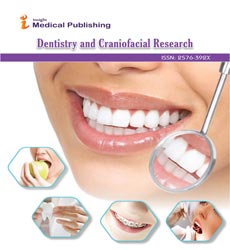ISSN : 2576-392X
Dentistry and Craniofacial Research
Ethics the science of the ideal human character and behavior in situations where distinction must be made between rights and wrong, duty must be followed and good interpersonal relations maintained
Abstract
Ethics have been mentioned even in the Vedas and Upanishads prior to 1,000 BC. Also by 470 BC Greek philosophy evolved. The early modern period more naturalistic and less religious a time of free will. The 20th century brought a great variety of moral beliefs, allowing a freedom in which each man could select his own values. Dental ethics: Moral duties and obligations of the dentist towards his patients, professional colleagues and to the society. Microethical principles: They focus primarily on individualsâ?? rights and duties and do not see individuals as part of a wider social order.Macroethical problems: Guide the conduct of population-based research and practice Why do we need code of ethics?In order that dignity and honor of the dental profession may be upheld Its standards exalted its sphere of usefulness extended and the advancement of dental science promoted & the members of the dental association may understand the duties and obligations clearly to the dental profession, to their patients and to the community at large. The members of the dental association may understand the duties and obligations clearly to the dental profession, to their patients and to the community at large. It should be remembered that profession exists as long as it enjoys the trust of the society. This can be assured by always placing the interest of the patient above oneâ??s own interest. Biography: Prashant Sharma has completed his M.D.S at the age of 28 years from Bharati Vidyapeeth University, Pune and B.D.S from Manav Rachna Dental College. He is a Senior Lecturer at Manav Rachna Dental College. He is associated with Fortis Hospital in Delhi as an associate Orthodontist and owns his private clinic by the name of Smile White Dental in Gurugram.
Open Access Journals
- Aquaculture & Veterinary Science
- Chemistry & Chemical Sciences
- Clinical Sciences
- Engineering
- General Science
- Genetics & Molecular Biology
- Health Care & Nursing
- Immunology & Microbiology
- Materials Science
- Mathematics & Physics
- Medical Sciences
- Neurology & Psychiatry
- Oncology & Cancer Science
- Pharmaceutical Sciences
